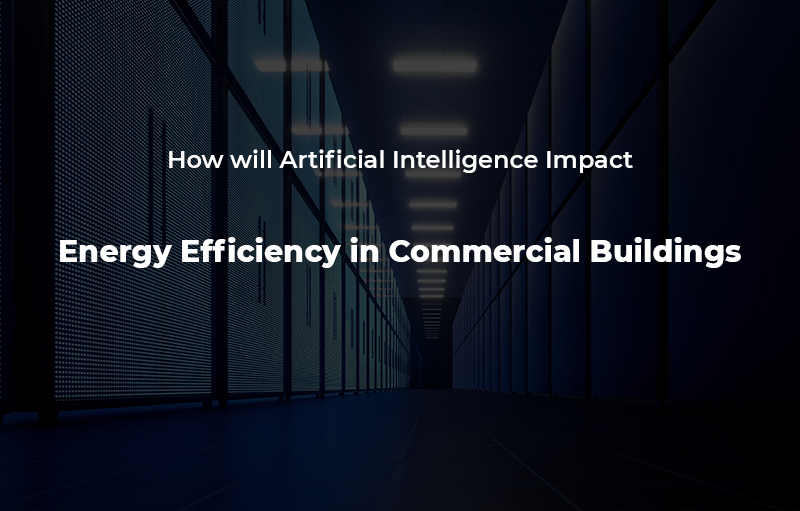
27 Jan How will Artificial Intelligence Impact Energy Efficiency in Commercial Buildings
Artificial Intelligence (AI) is revolutionizing the world we live in, and its impact on various industries cannot be overstated. One such industry that is set to benefit immensely from the adoption of AI is commercial buildings, where energy efficiency is a major concern. AI has the potential to transform how energy is consumed in commercial buildings, making them more sustainable and cost-effective. In this blog, we will explore how AI will affect energy efficiency in commercial buildings.
Firstly, it is important to understand how AI works. AI involves the development of computer algorithms that can learn from data and make decisions based on that data. In the context of commercial buildings, this means that AI algorithms can be used to analyze and optimize energy consumption patterns based on various factors such as occupancy, weather conditions, and time of day. AI can also help to identify potential sources of energy waste, such as inefficient HVAC systems or lighting, and recommend solutions to reduce energy consumption.
One way that AI can improve energy efficiency in commercial buildings is through the use of smart sensors and IoT devices. These sensors can be used to collect data on energy usage patterns in real-time, allowing AI algorithms to analyze the data and make recommendations for optimizing energy consumption. For example, if a building is not being used during certain times of the day, AI algorithms can automatically adjust the temperature or turn off unnecessary lighting to save energy.
Another way that AI can improve energy efficiency in commercial buildings is through the use of predictive analytics. Predictive analytics involves the use of machine learning algorithms to analyze historical data and make predictions about future events. In the context of commercial buildings, predictive analytics can be used to forecast energy usage patterns based on weather forecasts, occupancy patterns, and other factors. This allows building managers to proactively adjust energy consumption to reduce costs and improve energy efficiency.
AI can also be used to optimize the performance of building systems such as HVAC and lighting. By analyzing data on energy consumption and building performance, AI algorithms can identify opportunities to optimize the performance of these systems, reducing energy consumption and improving energy efficiency. For example, AI algorithms can adjust the temperature in different zones of a building based on occupancy patterns, or adjust lighting levels based on natural light levels.
In addition to improving energy efficiency, AI can also help to reduce maintenance costs for commercial buildings. By analyzing data on building systems and equipment, AI algorithms can predict when maintenance is needed, reducing downtime and maintenance costs. This can also help to extend the lifespan of building equipment, reducing the need for costly replacements.
In conclusion, AI has the potential to revolutionize energy efficiency in commercial buildings. By analyzing data on energy consumption patterns, optimizing building systems, and using predictive analytics, AI can help to reduce energy consumption, lower costs, and improve sustainability. As the adoption of AI continues to grow, we can expect to see more and more commercial buildings leveraging this technology to improve their energy efficiency and reduce their environmental impact.
The Cotocon Group has over 12 years of experience in Building Sustainability Compliance. Reach out to us for more information and knowledge about NYC Local Law 97.
